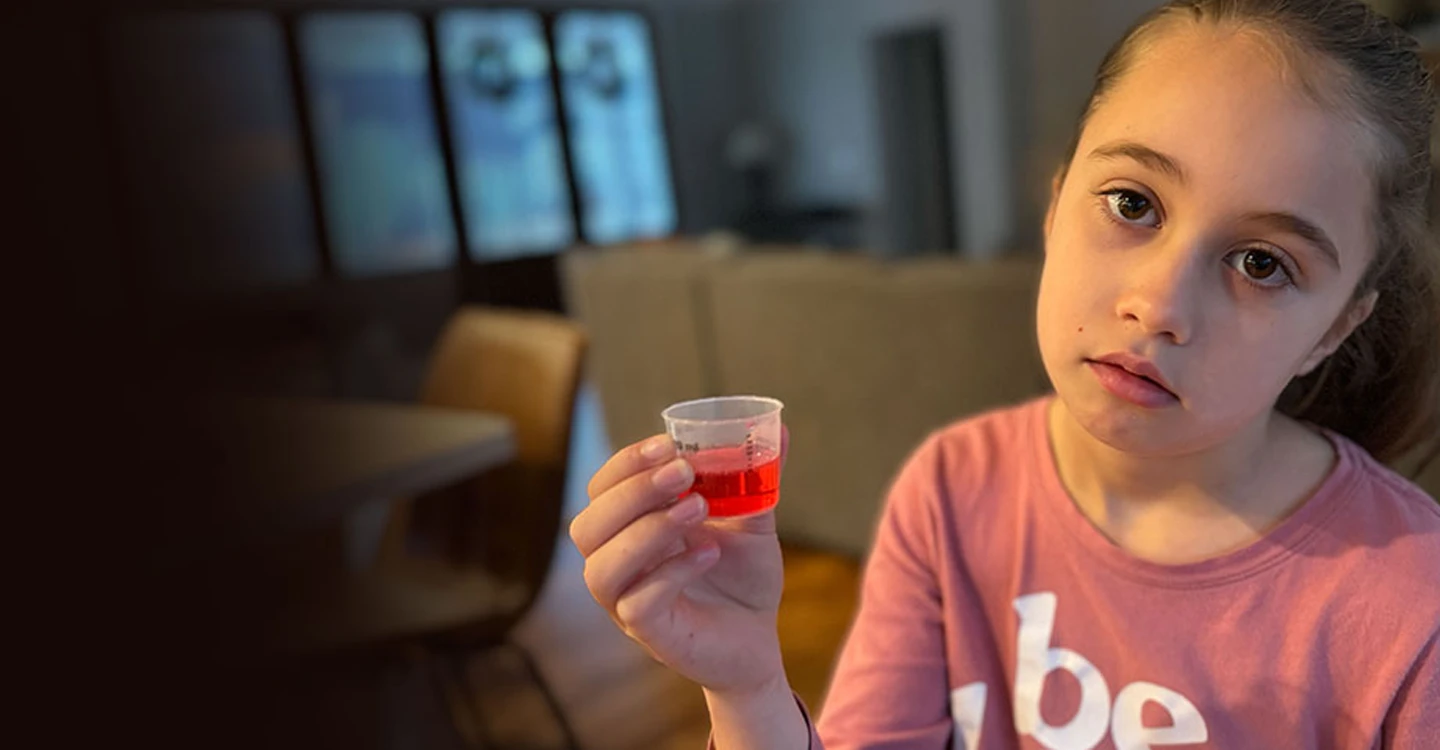ROME, Ga., March 1, 2024 – Getting your child to take their medicine can be a challenging task. The unfamiliar taste, odd textures and the general discomfort associated with being sick can make this seemingly simple task a real struggle. On top of that, parents are likely feeling stressed and overwhelmed trying to comfort and care for their sick child.
To make giving medicine a smoother process, Dr. Mark Boudreau, with Atrium Health Floyd Pediatrics Shorter Avenue, offers some guidance that could improve the experience for you and your child.
Keep it positive
If you're feeling frustrated while trying to administer medication, odds are your child is feeling it, too. Take a deep breath and try your best to approach the situation as positively as possible. This will also help lay the groundwork for smooth experiences in the future.
“Toddlers can be especially challenging when you are giving them medications," Dr. Boudreau said. “Try to stay calm and make the experience as positive as you can. It will help to have an action plan, which will be easier to do after you have been successful."
Create a routine
Establish a consistent time for your child to take their medicine each day. Whether it's after a meal, before bedtime or during a specific activity, having a set schedule can help children anticipate and accept the medicine routine. (Just make sure the routine aligns with the directions prescribed by your child's provider.)
Use a little magic
Sometimes just adding a little quirkiness can flip a switch in a child's imagination and make the experience more lighthearted and engaging. Explore some creative ways to administer medicine. Like pretending that they are a magician, and their trick is to make the medicine disappear.
You can also present the medicine cup with a silly straw, transforming the act of taking medicine into a game. Or try distraction techniques to shift their focus away from the medicine. Engage your child in a favorite book, show or game just before giving them the medication. By capturing their attention with an enjoyable activity, you can minimize their focus on the medicine itself, making the process less intimidating and more seamless.
Enlist them in the process
If the medication comes in different flavors, ask your child to choose which one they'd like. Including them in the decision-making process can go a long way in helping them feel more comfortable in a situation in which they may feel powerless.
Most medication can be mixed with a small amount of food. If taking the medicine directly is a challenge, your child can choose to add it to a spoonful of their favorite treat, such as pudding, ice cream, applesauce or yogurt. If you do choose to use this method, keep in mind that you should only use a minimal amount of food (a teaspoon or less) so you can be sure your child takes all the medication. And be sure to check with your child's doctor before mixing medication into food.
Taking medicine can be a scary experience for some kids. Encourage your child to ask questions and express any concerns they may have along the way. Involving your child in the process not only gives them a sense of control but also makes them active participants in their own healing process.
Use positive reinforcement
Create a reward system that positively reinforces the act of taking medicine. Consider using a sticker chart where each successful dose leads to a sticker, eventually accumulating to a small treat, surprise or extra playtime. This system not only motivates children to participate willingly but also helps them visualize their progress. (“You've had six out of eight doses. That means we're almost done!") It also helps them associate the medicine routine with positive outcomes.
Be clear about medication
Even with these tips, your child may still be pushing you to the limits when it comes to taking their medicine. But while it may be tempting to tell them it's “candy" to get them to take it, this can seriously confuse kids and lead to an overdose in the future. It's important for them to understand what they are taking and why they are taking it.
“Kids should never be told medicine is candy, even if it might be something that tastes good to them," Boudreau said. “Also make sure they understand that they should never take any medication without a parent or caregiver being present."
Atrium Health Floyd Pediatrics at 304 Shorter Ave. is open Monday through Friday from 8 a.m. to 5 p.m. Call 236-4880 to make an appointment. Virtual visits are also available.
